
In the School of Health and Human Sciences, we remain committed to actively engaging in challenging those systems that engage in systemic and structural racism and violence against those who are marginalized, disenfranchised, and oppressed.
Our dedicated and experienced minority faculty are nationally and internationally recognized. They engage undergraduate, graduate, and doctoral students in a love of learning, the creation of new knowledge, a spirit of entrepreneurship, and a commitment to our vision of making the world better, safer, healthier, and more just.
The faculty below are deeply dedicated and engaged in research, working directly with undergraduate and graduate students on projects examining issues related to dismantling racism, racial inequities, and violence in order to improve the health and well-being of minority populations and society as a whole.
We invite you to explore our faculty’s excellent work and research.
Communication Sciences and Disorders
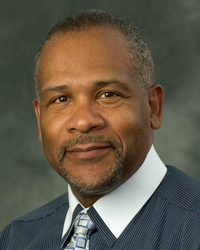
Robert Mayo, Ph.D., CCC-SLP
Professor
Dr. Mayo is the former editor of ECHO: The Journal of the National Black Association for Speech-Language and Hearing and contributor to the book, The History of the National Black Association for Speech-Language and Hearing.
In 2016, he published the article, “Communication wellness: A pathway to reducing health disparities in populations of color” in ECHO.
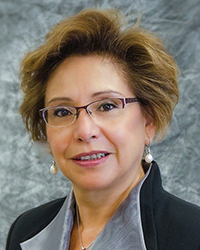
Lucia Mendez, Ph.D., CCC-SLP
Associate Professor
Dr. Mendez joined the School of HHS in the fall of 2019. Her current research investigates literacy-based approaches to vocabulary instruction for Latino preschoolers and the role of language in promoting school readiness skills, including early math, sciences and literacy.
Dr. Mendez is a Co-PI of an inter-institutional research team that in 2019 received a grant from the National Institutes of Health for their project, “More PEAS Please! Bridging the Gap in Preschool Science Learning Environments for Teachers and Underrepresented Minority Children.”
Human Development and Family Studies
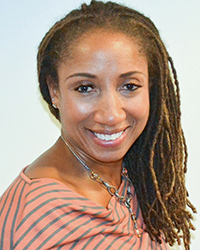
Stephanie Coard, Ph.D.
Associate Professor
Director of Graduate Study
With close ties to the African American community, Dr. Coard has always concerned herself with increasing awareness and sensitivity to how ethnicity and race impact the process and outcome of mental health treatment and in the implementation of evidence-based practices in communities of color.
In 2017, she received scholarship support for her project, “Forgotten and misunderstood: Giving voice to Black fathers.” And in 2017-2018, she received a grant from the National Institutes of Health for “Promoting dialogues: Racial/Ethnic socialization in racially/ethnically diverse and immigrant families.”
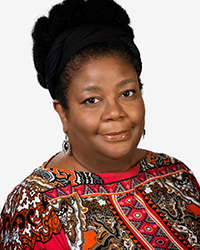
Andrea Hunter, Ph.D.
Professor
Dr. Hunter was recently tapped as UNCG Chancellor’s Fellow for Campus Climate. She will work with the Chancellor’s Office to identify opportunities and develop new initiatives for equity, diversity, and inclusion.
The major aims of her research are to explore the linkages between the life course, families, and social structure, and to broaden research on African Americans, especially families. Dr. Hunter’s most recent publication, “Social capital and parenting in African American families” appears in the Journal Child and Family Studies.
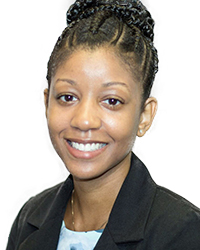
Bridget Richardson, Ph.D.
Assistant Professor
Dr. Richardson’s research focuses on parental racial socialization and its implications for African American adolescents’ and college students’ positive development. Specifically, the development of youth’s racial identity beliefs, their academic motivation, and psychological well-being and resilience, especially in contexts where they may encounter racial discrimination.
Her most recent work, “Examining college students’ multiple social identities of gender, race, and socioeconomic status: Implications for intergroup and social justice attitudes” is published in the Journal of Diversity in Higher Education.
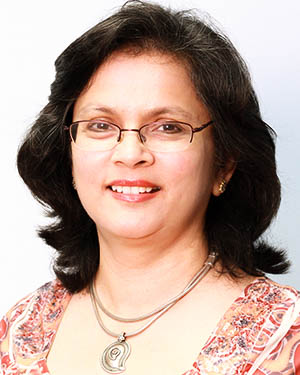
Sudha Shreeniwas, Ph.D.
Assistant Professor
Dr. Shreeniwas is an active community-engaged scholar and researcher, working with diverse ethnic minority refugee/immigrant communities in North Carolina, on issues related to family relationships and health.
In addition to the above, her work includes examinations of family and gender violence in refugee and immigrant minority communities. She was a co-founder of a non-profit that provides free and confidential resources on family violence for minority immigrant communities. Her most recent work in this area was a community-engaged project that involved HHS undergraduates on elder abuse and neglect in two refugee communities.
Her work highlights how racial inequalities and racism shape the context for minority families and communities’ health status and profiles and accessing health care, in the context of ongoing low income and marginalization.
She has worked widely and deeply for years mentoring diverse undergraduate students in research and community engagement on these topics.

Jocelyn Smith Lee, Ph.D.
Assistant Professor
Dr. Smith Lee’s community-engaged program of research aims to enhance the health, development, and family relationships of Black boys and men. She studies issues of violence (e.g. community violence; police killings), traumatic loss and bereavement, and healing among Black families. Dr. Smith Lee was recently awarded a prestigious $100,000 grant from the Bill & Melinda Gates Foundation for her project aiming to uncover the stories of young Black men in Baltimore, “Disrupting Dehumanizing Narratives of Black Men in Poverty.”
This photovoice and ethnographic work will seek to “engage citizens and leaders in transformative dialogue that affirms the humanity of young Black men and deepens awareness about root causes and barriers to their economic mobility.”
Kinesiology
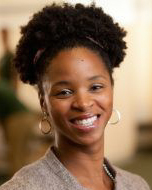
Deanne Davis Brooks, EdD
AP Assistant Professor
Dr. Brooks has delivered lectures and workshops to student-athletes, coaches, and athletics administrators nationwide on the topic of transitioning from competitive athletics to lifelong physical activity. She co-developed the Moving On! program to help athletes make healthy transitions to life after sports.
She has given presentations on advocating for inclusion, difference, and social justice in physical activity and has been a recurring speaker for the NCAA Minority Coaches’ Series Conversations. She recently authored “Diversity in Exercise Psychology as a Function of Race, Culture and Ethnicity in the Handbook of Sport and Exercise Psychology Vol. 2 published by the American Psychological Association.
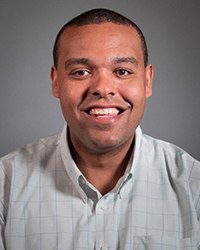
Michael Hemphill, Ph.D.
Assistant Professor
Dr. Hemphill’s research focuses on teaching personal and social responsibility through sport, physical activity, and physical education with specific applications to urban communities and professional development programs for physical activity providers.
In 2018, he received the Charles D. Henry Award from the Society of Health & Physical Educators (SHAPE) America. The award recognizes one member’s contribution through distinguished service to ethnic minorities in SHAPE America.
Nutrition
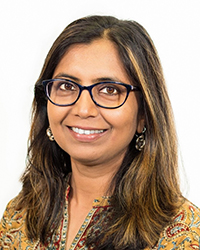
Jigna Dharod, Ph.D.
Associate Professor
Director of Graduate Studies
Dr. Dharod’s research is focused on identifying underlying mechanisms, associated risks, and effective strategies to address food insecurity at both national and international levels. Given the critical role nutrition plays in fetal and child development, Dr. Dharod is especially interested in understanding the impact of food insecurity in the first 1000 days of life.
Internationally, Dr. Dharod’s efforts are focused on the assessment of water insecurity and its effect on three pillars of food security: Availability, Access, Utilization.
Peace and Conflict Studies
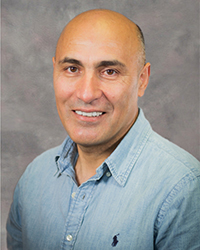
Ali Askerov, Ph.D.
Associate Professor
Director of Graduate Studies
Dr. Askerov has written on ethnic conflict, terrorism, mediation, peace education, conflict transformation, refugee issues, and structural violence, among others. He is a research fellow of the Center for New North Carolinians and has been interviewed for various broadcasts on international conflicts, terrorism, and national security issues.

Omari Dyson, Ph.D.
Dr. Omari L. Dyson was an Academic Professional (A.P.) Assistant Professor in the Department of Peace and Conflict Studies at the University of North Carolina-Greensboro (UNCG).
He has authored and co-authored various works that attend to the inter-relationship among power, culture, social transformation and social identity(-ies). With a commitment to uplifting the lives of others in a fun and healthy way, he has acquired licenses and certifications as a Group Exercise Instructor (AFAA), Personal Trainer (NASM), Fitness Nutrition Specialist (NASM), and Zumba Instructor (ZIN), Gold’s Fit/Boot Camp Coach, and Injury Prevention Trainer (AFAA).
Alongside his academic and fitness experience, Dr. Dyson has an extensive martial arts background across multiple disciplines. As a husband, father, community servant, academician, personal trainer, and group exercise instructor, Dr. Dyson has dedicated himself to serving various communities in his quest to combat child and adult obesity through critical health education and wellness, physical activity and movement, policy reform, and virtual reality.
Public Health Education
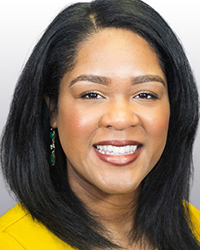
Crystal Dixon, MPH, MCHES, NBC-HWC
AP Assistant Professor
Professor Dixon has contributed to various research projects for organizations such as the Durham County Department of Public Health, the Brody School of Medicine Center for Health Disparities Research, and the UNC Center for Health Promotion and Disease Prevention. During her time as a Public Health Education Specialist at the Durham County Department of Public Health, she mobilized communities to take action on managing their diabetes and launched the What’s the 411 series.
This series has been institutionalized today. As the previous co-chair for Obesity and Chronic Illness, a sub-committee under the Partnership for a Healthy Durham, she has used this platform and supported hosting ‘courageous conversations’ to introduce racial equity to community partners all throughout Durham County.
Today, she is an active member of the Guilford Anti-racism Alliance (GARA) and collaborates with local politicians and community leaders to organize strategies to dismantle structural racism across systems in Guilford County. As an active member of the Greensboro Health Disparities Collaborative, and has participated in research that addresses structural racism in the healthcare system which serves as a model for other cancer centers across the country. Dixon’s research is now exploring the intersection of sustianability, environmental racism, climate change, and health inequities.
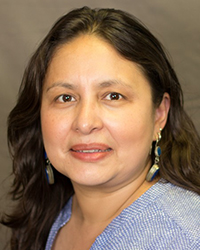
Sandra Echeverria, Ph.D.
Associate Professor
Much of Dr. Echeverria’s research interests stem from her experience growing up as an immigrant child, raised in a working-class home, and being the first to graduate from college in her family. Her research centers on understanding social inequalities in cardiovascular risk and cardiovascular health behaviors, particularly physical inactivity, diabetes, and smoking. As a social epidemiologist, she uses an interdisciplinary lens to understand the complex social processes that produce health inequalities for Latinos and other racially/ethnically diverse groups living in the United States, and more specifically examines how immigrant status, neighborhood contexts, and socioeconomic disadvantage are associated with cardiovascular risk factors. She has dedicated much of her research career to finding ways to directly alleviate health inequalities through translational, community-engaged research by working with community partners in the design, implementation and evaluation of interventions that reduce cardiovascular risk via increased physical activity adoption.
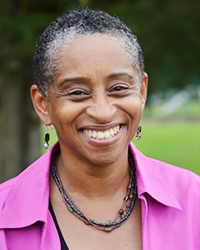
Sharon Morrison, Ph.D.
Associate Professor
Dr. Morrison’s research is guided by the principles of cultural competence and community engagement, and grounded in ecological frameworks of disease occurrence, management and prevention. She has conducted field research in the rural English-speaking Caribbean – Jamaica and the Bahamas, in Malaysia, Mexico, Rwanda, South Africa and Zambia, and community-based research with ethnically diverse U.S. populations (Hispanic/Latinos, Africans/African Americans). She is a Research Fellow with the Center for New North Carolinians, and through such has partnered with local and national refugee and immigrant serving organizations to address some of these challenges.
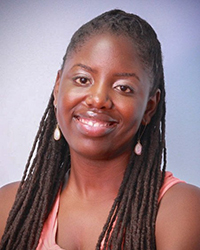
Erica Payton, Ph.D.
Assistant Professor
Dr. Payton has focused her research agenda in three areas: firearm violence prevention, cardiovascular health and community engagement. Examples of manuscript topics include: the role of community empowerment in decreasing health disparities, the development of an attribution of racial/ethnic health disparities scale, African American legislators’ perceptions of firearm violence prevention legislation, University presidents’ perceptions of firearm violence prevention, and the role of high schools in addressing racial/ethnic health disparities. Her current research includes exploring the associations between chronic exposure to violence and cardiovascular health outcomes.
Michelle Martin Romero, Ph.D. (Fall 2020)
Assistant Professor
Michelle’s program of research seeks to understand the contextual and developmental factors that influence youth of color’s contributions to the family’s everyday survival in low-socioeconomic, resource-poor settings.
Specifically, her work considers what youth contributions look like in mixed-status (e.g., U.S. citizen child vs. undocumented parent) Latinx families living in non-traditional (im)migrant destinations; how these contributions may be encouraged or limited by the surrounding micro-, meso-, exo-, and macro-systems; and, consequently, how such contributions may shape the health and development of Latinx youth over the life course. Michelle’s work employs a youth-centered participatory research approach that places emphasis on the voices and lived experiences of youth, especially with experiences relating to immigration and discrimination.
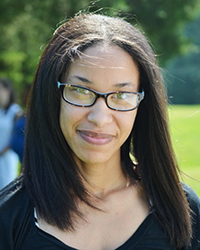
Carrie Rosario, Ph.D.
Associate Professor
Dr. Rosario’s philosophy of research and practice is guided by principles of health equity, which is social justice in health. Her current research and practice in Tobacco-related Health Disparities and relationships between place and health work to identify and advocate policy, systems, and environmental strategies to address root causes of racial/ethnic and socioeconomic health disparities.
She has also served as Task Force member and Co-Lead of Health Behavior Work group to inform the development of 10-year indicators and targets to improve the health of all North Carolinians.
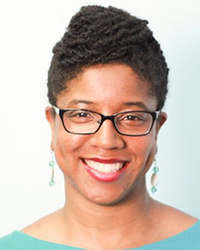
Christina Yongue, MPH, MCHES
AP Assistant Professor
Director of Undergraduate Studies
Professor Yongue’s research contributions center around racial equity in healthcare, bringing together research and anti-racism advocacy, and community-university partnerships. She was the Project Manager for an NIH-research project that successfully eliminated a racial health disparity in cancer medical settings, called “Accountability for Cancer Care through Undoing Racism and Equity”, which was organized by the Greensboro Health Disparities Collaborative in partnership with UNC-CH, Cone Health, University of Pittsburgh Medical Center, and Sisters Network Greensboro.
She also co-facilitated Community-Based Participatory Research Charrettes to help strengthen community-university research partnerships in North Carolina and across the nation at other Prevention Research Centers and Clinical and Translational Science Award Institutions.
She is the principal investigator for the Case Study Development Project “Seeking Health Equity: Examining Racism as a Social Determinant of Health”. She led the planning of the 2019 “Social Justice and Health Equity” Symposium, which was a community-university collaboration focused on research and partnership progress relevant to people of color.
Social Work
Tanya Coakley, Ph.D.
Associate Chair in Social Work for Research
Dr. Coakley is best known for her current research project “Barbershop Talk,” which investigates how barbershops can help foster better communication between fathers and sons in the African-American community. The project is funded by a National Institute of Child Health and Human Development grant.
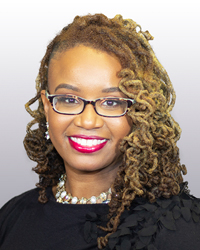
Yarneccia Dyson, Ph.D.
Assistant Professor
Dr. Dyson engages in health disparities research that focuses on reducing and alleviating negative health outcomes by empowering marginalized communities through Implementation Science. Currently, Dr. Dyson is the Principal Investigator of Engage3, a Pilot Study that tests the feasibility of an HIV prevention intervention that she developed based on the findings from an initial study that focused on addressing the Sexual Health Needs of Black College Students enrolled at Historically Black Colleges and Universities (HBCU) and Minority Serving Institutions (MSI).
Most recently, she was selected as a 2020 Health Disparities Research Institute Scholar.

Jeffrey Shears, Ph.D.
Associate Professor
Director of Graduate Studies
Dr. Shears’ research explores the idea of fathering and at-risk behaviors within minority communities with an emphasis on quantitative research methodology that can be shared amongst social service agencies.

Tyreasa Washington, Ph.D.
Associate Professor
Dr. Washington’s research efforts are focused on mental health and social & academic competence among African American children and African American kinship care children & families, as well as child welfare. She was recently awarded the 2020 UNCG Thomas Undergraduate Research Mentor Award.